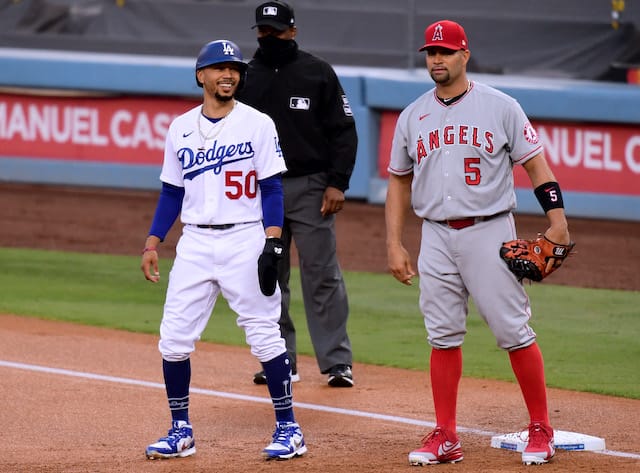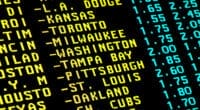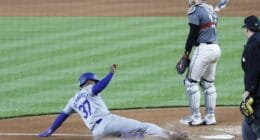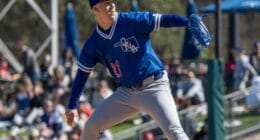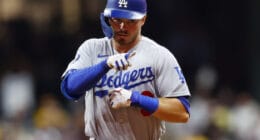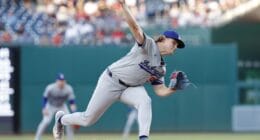This season, the Freeway Series between the Los Angeles Dodgers and Los Angeles Angels was played in an empty ballpark, void of the fanfare that normally exists when these two southern California teams meet.
That wasn’t the only difference entering the first series in mid-August as the two teams entered vastly different circumstances. At the start of the series, the Angels were five games under .500 and already on the outside of the expanded playoff picture. The Dodgers led their division and had the second-best record in baseball. The three-game series played out over three days as expected. The Dodgers swept the Angeles 7-4, 6-5, and 8-3, burying the Angels playoff hopes as they fell to 7-15 a third of the way through the season.
According to legal Pennsylvania online betting sites, the Dodgers were -400 to win the series, and betters were rewarded early and avoided a sweat when the Dodgers won the first two games of the series.
The second series to conclude the season was no different. The Dodgers had already clinched the best record in baseball but still had enough in the tank to drop the Angels three straight by the scores of 9-5, 7-6, and 5-0. The 6-0 series sweep was just another feather in the cap of the Dodgers 2020 season, that saw them win the World Series for the first time since 1988.
Freeway Series History
While the Dodgers and Angels have been playing each other since 1962 in exhibition and spring season games, it wasn’t until 1997 and regular-season interleague play that they actually played for keeps. Overall, the Angels lead the series with a record of 70-60.
In the 23-year history of the Freeway Series, the Dodgers have only won the season series on six occasions. Despite the lopsided record, the series has produced some historic moments.
1997: First Series, First Sweep
The debut Freeway Series kicked off on June 17, 1997, in Dodger Stadium. Chan-Ho Park started for the Dodgers against Angels ace Chuck Finley. The Angels led the game 3-2 until the bottom of the ninth inning when with two outs, Dodger third baseman Todd Zeile hit a walk-off home run against Angels closer, Troy Percival, giving the Dodgers a 3-2 victory.
The Dodgers would go on to win the next three games to take the opening series 4-0.
1999: Tempers Flare
It was again Chan Ho Park on the mound for the Dodgers, this time against ex-Dodger Tim Belcher. The game was scoreless until the fourth inning when the Angels jumped to a 4-0 lead thanks to a grand slam by catcher Matt Walbeck.
In the fifth inning, Park was batting in a situation where you’d expect a sacrifice bunt. Park got the bunt down towards the first base side, but a charging Belcher was able to field the ball and applied a hard tag on the running pitcher. Park, already frustrated about the grand slam, had words with Belcher which quickly escalated into a spinning kick by the Korean pitcher.
Benches cleared and when the dust settled, Park had been ejected. The Dodgers would go on to rally for seven unanswered runs, winning the game 7-4, and going on to win the series 4-2. Park didn’t get the win, but he did get a seven-game suspension.
2008: The Oddest Near No-Hitter
On June 28, 2008, Angels starting pitcher Jered Weaver and reliever Jose Arredondo held the Dodgers hitless through eight-innings yet managed to lose the game 1-0.
All the action occurred in the fifth inning. Dodger outfielder Matt Kemp led off the fifth inning and reached base on an error when Weaver fumbled a weakly-hit ball toward him on the mound. Kemp stole then second base and advanced all the way to third on a throwing error by Jeff Mathis. Blake DeWitt then hit a sacrifice fly to deep right field which allowed Kemp to score what would be the winning run.
What makes this game even odder is that despite the Dodgers going hitless, Weaver and Arredondo would not get credit for an official combined no-hitter. The Dodgers batting second with the lead, only allowed Angels pitchers to record eight-innings against them, leaving them three outs shy of the required nine innings for an official no-hitter.
